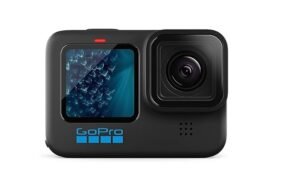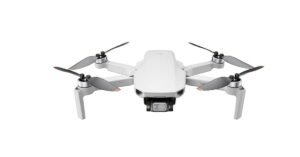Fitness trackers are popular wearable devices known for their design and function. They come in various forms, digital watches or bands. Most of the models share common features such as monitoring heart rate, steps counts and tracking sleep patterns.
Moving from simple to more advanced, they cover health-tracking features such as monitoring daily burned calories, healthier diet choices and stress management.
The best fitness trackers are designed to look great and help people monitor their fitness and physical activities. They have connected apps to track physical progress and provide guidelines to help users reach their fitness goals.
In a world where health matters a lot, staying informed about our physical well-being is crucial. We have to monitor our body functions if we want to live life to the fullest.
Fitness trackers are among the best devices to monitor our physical activity. They are small, revolutionized gadgets that help us stay healthy. we will look at the pros and cons of fitness trackers to see how they can improve our workouts.
Pros of fitness trackers
1. Stay motivated
A fitness tracker shows real-time data about your activities. This way you will be instanly aware of your health and do whatever is best to your health. Here, you can see number of steps taken, calories burned and heart rate.
2. Set and achieve goals
These trackers help you set your own fitness goals like number of steps walked, distance run and hours slept. When you reach your goal, the feeling of success boosts your enthusiasm to keep going, leading to more improvement.
3. Heart health monitoring
Some of the most advanced fitness trackers allow you track heart rate to keep updated of heart health during workouts and at rest.
4. Sleep Tracking
Fitness trackers are helpful for tracking your sleep movement at night. They also Help you to get three full cycles of sleep to maintain your energy levels. They allow your body and brain the time they need to recover and process the day.
5. Weight Loss
Using a fitness tracker to meet your personal goals set to lose weight. By tracking your activity levels, you can see if you are on track to lose the weight you want.
Cons of fitness trackers
1. Questionable accuracy
Fitness trackers have improved a lot terms of accuracy but there may still be discrepancies in measurements. Depending entirely on data provided by fitness tracker might not always give an accurate picture.
2. Relying too much on numbers
Sometimes, we focus only on reaching our number goals. This can push us too much and make us forget about other important aspects of fitness, like staying flexible and building muscle strength.
3. Privacy worries
Fitness trackers gather personal information and there might be a chance that this data could be misused or used improperly. It is important to be careful about keeping your data safe.
Final word
Fitness trackers help you monitor heart rate, count steps, and track sleep. Advanced models also track calories, diet, and stress. These devices help you watch your fitness and daily activities, using connected apps to track progress and set goals.





